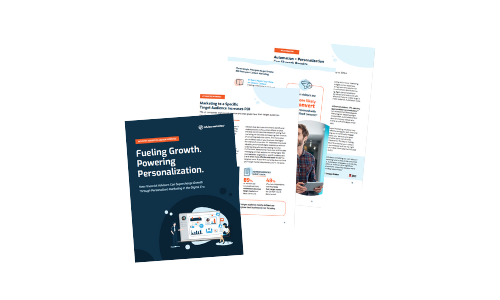If artificial intelligence isn’t already a part of your work or personal life, it will be soon. AI is becoming more accessible to businesses, and everyone wants to integrate this game-changing technology into their companies. Trucking companies are purchasing self-driving semis, customer support departments are needing fewer human voices and financial trends are being analyzed very accurately.
If you are a cashier or a bookkeeper, you must be noticing how machines are taking a lot more of the available positions. These sort of changes are a straight swap; McDonalds implements large touch screens to take orders and asks their employees to come into work less. However, for financial advisors these changes can both enhance and grow your business; individuals that can realize this will have an advantage over their competitors.

A human face will be always be trusted
The same argument is always presented when someone claims that, “robots are taking over”. It’s that people trust people; especially with important decisions like their money. I don’t think anyone can deny that the advice from your family friend whom you’ve known for 10 years will be given much more respect than a robotic, monotone voice on a screen. But there are simply a number of things that the robotic voice can do better and faster. According to Financial Advisor IQ, 32% of companies in the financial-services space are using AI for predictive analytics, voice recognition and response, and recommendations. These are some of the areas that robo advisors are excelling in.
Financial Advisors shouldn’t look at this is as the end of their profession, but more as a sparkling opportunity. Instead of wasting hours a day answering questions about simple returns on mutual funds, advisors can use the saved time to enhance their client’s experience. They can start looking into long-term solutions and explore more investment options that a standard meeting wouldn’t normally have time for.
But it’s not a battle, more joining forces
One of the strengths that AI can offer over an advisor is price. The hourly wages and man power is eliminated, which leaves a fee that is a fraction of the price. The millennial generation is attracted to this, combined with how much more comfortable they are with technology anyways. A recent Microsoft survey showed that 49% of millenials are more likely to use AI for financial advice (opposed to 35% of Gen Xers). The younger generation are much less likely to trust large institutions and will lean more towards the fairness and lack of bias a robot offers. This is why advisors can’t afford to ignore the rise of this technology and should offer services that can present the best of both worlds.

Don’t change your value proposition
The same reasons for why your clients choose you are the same. Just because you implement AI technology doesn’t mean you are losing the personal touch your business has always offered. Think of it as the AI doing the grunt work, followed by you following up to analyze and advise, while taking into consideration the life circumstances of the client. Niche specializations will still be sought after and marketing will be as important as ever.
This wave of technology can be a controversial topic and creates an uncomfortable feeling among the financial advisor community. However, if advisors can successfully implement and combine their services with AI technology, a range of new possibilities are on the horizon.

.jpeg)






